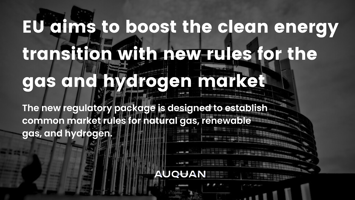The European Council (EU) has formally adopted a new regulatory package to establish common market...

The government released its new NDC, outlining a new climate goal for the country to reduce economic-wide greenhouse gas (GHG) emissions by 59 %—67 % by 2035. With the NDC, Brazil recently reported a significant goal in forest conservation by decreasing 31% of deforestation in Amazon forests over the past year, the largest drop in 15 years.
Both these announcements align with the global trend toward sustainability, which may potentially attract more capital in green investments globally. Private equity/credit firms, asset managers, and impact investors may focus on sectors that deal with deforestation, sustainable agriculture, and renewable energy to leverage the potential opportunities.
Let’s explore the new goals set by Brazil in detail.
While the country promotes out-of-the-line climate goals, some environmentalists and critics worldwide have expressed concerns about the targets' adequacy in truly addressing climate change. The contradiction arises from the use of different modeling approaches by environmental institutes. The models adopted and the lack of specificity in the document.
Andreas Sieber, associate director for global policy and campaigns at 350.org, said, “Brazil’s initial 2035 climate target is minimally sufficient but falls short of true ambition. This announcement, while a step forward, underscores both progress and the challenges inherent in climate diplomacy. In an uncertain global landscape influenced by shifting U.S. climate policies, Brazil stands poised to assert its leadership in advancing stable, multilateral climate action and advocating for the renewable energy transition.”
Professionals in private markets and asset management firms use Auquan's Intelligence Engine to automate research and monitoring for deal sourcing, borrow screens and due diligence, risk monitoring, sustainability, and compliance workflows.
Using advanced AI techniques, Auquan generates material insights on any company or issuer worldwide — public or private — instantaneously, tailored for your workflow.
Let's explore how Auquan can help you and your team eliminate tedious and time-consuming manual data work and focus more on what you do best.
Each day we spotlight under-the-radar investment themes and idiosyncratic risks pulled from our intelligence engine, often involving emerging markets, supply chain issues, ESG risks, and the impact of regulatory changes.

The European Council (EU) has formally adopted a new regulatory package to establish common market...
.png?height=200&name=News%20Cover%20(64).png)
New Zealand has unveiled a second international climate target that aims to cut GHG emissions by...
.png?height=200&name=News%20Cover%20(48).png)
The Government of Canada has set a new climate goal for reducing greenhouse gas emissions by 45% to...
Each day we spotlight under-the-radar investment themes and idiosyncratic risks pulled from our intelligence engine, often involving emerging markets, supply chain issues, ESG risks, and the impact of regulatory changes.

15 minutes to see what’s possible when manual work disappears.
Interested in working at Auquan? Click here
The government released its new NDC, outlining a new climate goal for the country to reduce economic-wide greenhouse gas (GHG) emissions by 59 %—67 % by 2035. With the NDC, Brazil recently reported a significant goal in forest conservation by decreasing 31% of deforestation in Amazon forests over the past year, the largest drop in 15 years.
Both these announcements align with the global trend toward sustainability, which may potentially attract more capital in green investments globally. Private equity/credit firms, asset managers, and impact investors may focus on sectors that deal with deforestation, sustainable agriculture, and renewable energy to leverage the potential opportunities.
Let’s explore the new goals set by Brazil in detail.
While the country promotes out-of-the-line climate goals, some environmentalists and critics worldwide have expressed concerns about the targets' adequacy in truly addressing climate change. The contradiction arises from the use of different modeling approaches by environmental institutes. The models adopted and the lack of specificity in the document.
Andreas Sieber, associate director for global policy and campaigns at 350.org, said, “Brazil’s initial 2035 climate target is minimally sufficient but falls short of true ambition. This announcement, while a step forward, underscores both progress and the challenges inherent in climate diplomacy. In an uncertain global landscape influenced by shifting U.S. climate policies, Brazil stands poised to assert its leadership in advancing stable, multilateral climate action and advocating for the renewable energy transition.”
Professionals in private markets and asset management firms use Auquan's Intelligence Engine to automate research and monitoring for deal sourcing, borrow screens and due diligence, risk monitoring, sustainability, and compliance workflows.
Using advanced AI techniques, Auquan generates material insights on any company or issuer worldwide — public or private — instantaneously, tailored for your workflow.
Let's explore how Auquan can help you and your team eliminate tedious and time-consuming manual data work and focus more on what you do best.
Each day we spotlight under-the-radar investment themes and idiosyncratic risks pulled from our intelligence engine, often involving emerging markets, supply chain issues, ESG risks, and the impact of regulatory changes.

The European Council (EU) has formally adopted a new regulatory package to establish common market...
.png?height=200&name=News%20Cover%20(64).png)
New Zealand has unveiled a second international climate target that aims to cut GHG emissions by...
.png?height=200&name=News%20Cover%20(48).png)
The Government of Canada has set a new climate goal for reducing greenhouse gas emissions by 45% to...
15 minutes to see what’s possible when manual work disappears.
Interested in working at Auquan? Click here
